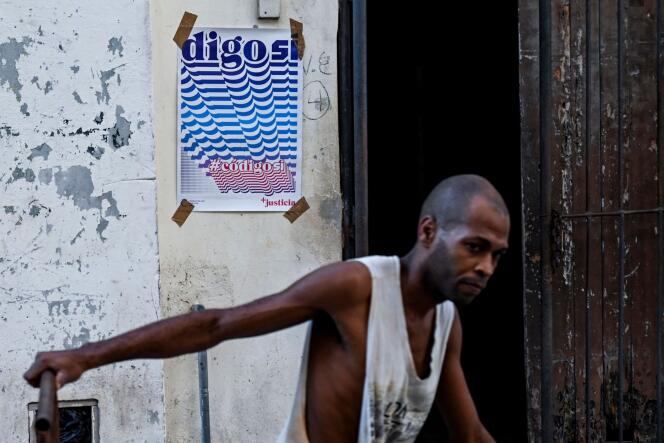Cuba’s same-sex marriage referendum divides society, poses dilemma for opposition


Contribute to the advancement of the rights of the long-stigmatized LGBT community, at the risk of politically strengthening the regime of Miguel Díaz-Canel, responsible for the imprisonment of a thousand people after the July 2021 demonstrations against shortages and lack of freedom. This is the dilemma many Cubans face in the run-up to the referendum on the Family Code.
More than eight million people are invited to vote on Sunday, September 25. The text, which aims to replace the family code dating from 1975, legalizes same-sex marriage, adoption for gay couples or “joint pregnancy” for others. Originally planned to be included in the constitutional reform that was voted on in early 2019, it was removed from it due to the controversy it raised. Twenty-four versions were drafted before the final one was approved by the Assembly in July. Its final confirmation depends on the outcome of the referendum. However, the outcome of the vote is all the more uncertain because the opposition of the church and conservative circles is joined by the opposition of many progressive dissidents.
“Consider abstinence”
“I will not vote: I will refrain from deliberation, The social-democratic opponent Manuel Cuesta Morua, who was contacted by phone, decides. I have long supported the rights of minorities, including LGBT people, but voting for this referendum, while the civil rights of the entire population are being violated, will not only be a way to renew the democratic image of the regime, which in reality is not. but to help him establish political legitimacy, which he lacks. »
The debate is lively in various circles of the opposition to the Cuban regime. “We do not vote for the CCP [Parti communiste cubain]. It’s the CCP that votes with us.”abstract on Twitter Mikel Gonzalez Vivero, journalist and director of an online magazine Tremenda noteDedicated to the LGBT community. His many spells in prison in recent years for reporting on social unrest in Havana will not prevent him from participating in the referendum.
In contrast, independent journalist and LGBT activist Maria Matianzo decided to refrain, arguing that “Certain civil rights are not more important than others: it is not because I am entitled to marry that I shall have the rights of citizenship.” Like many other LGBT activists, he also expressed regret that the government did not ask “sorry” For the persecution homosexuals were subjected to between 1965 and 1968, when they were sent to forced labor camps, Military Production Assistance Units (UMAP).
Source: Le Monde
Leave a Reply